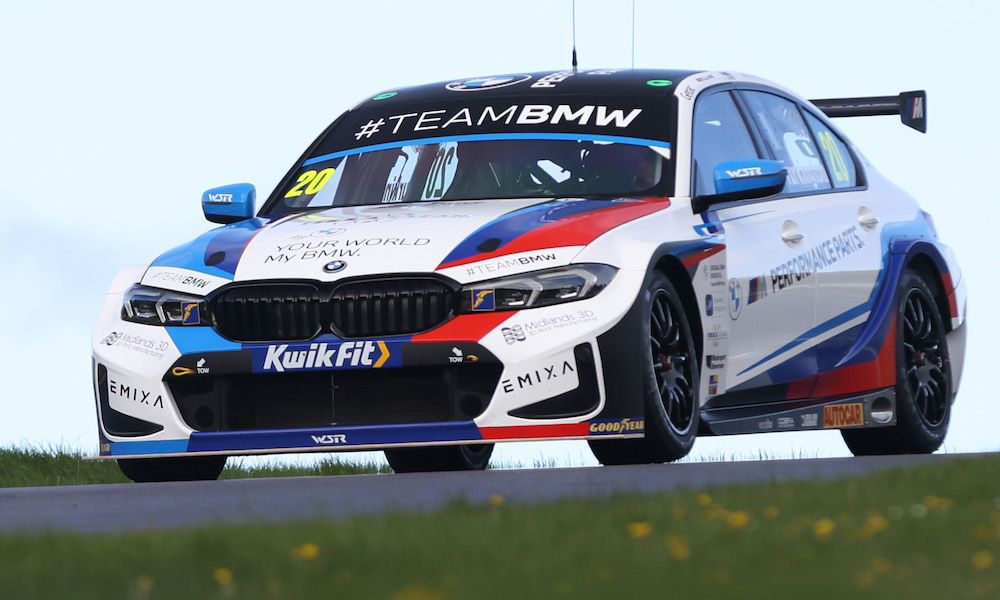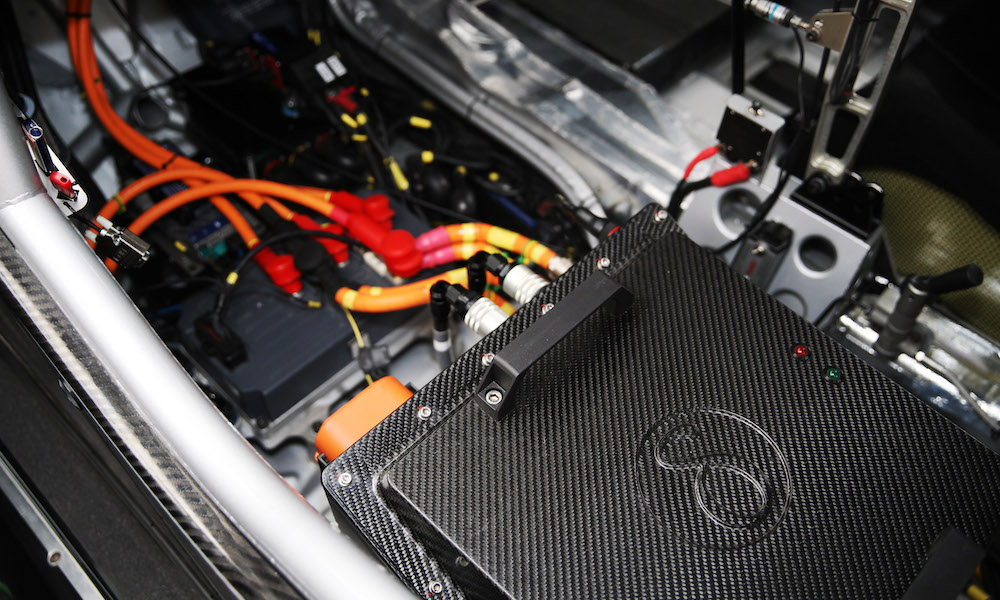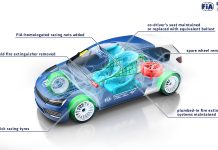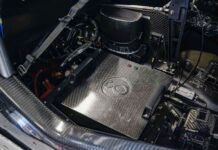The British Touring Car Championship (BTCC) will drop the use of hybrid systems after three seasons in favour of running its cars on 100 per cent sustainable fuel starting next year.
Since 2022, cars in the UK’s top touring car series have been running with an electric motor that contributes to a 60bhp power boost when deployed by the driver. The technology was introduced to replace success ballast, as part of the series’ push to become more sustainable.
However, the BTCC will switch its sustainability focus to using fossil-free fuels to run the non-hybrid internal combustion engines. A statement from the series said dropping the hybrid system would make the cars ‘lighter and more dynamic’ with around 55kg taken out.
Haltermann Carless will provide its Hiperflo ECO102 R100 to all cars on the grid. The product is 100 per cent fossil fuel free and is derived from non-crude biological and synthetic sources. Carless is already providing a 20 per cent sustainable fuel to the BTCC, as part of an agreement running from 2022 to 2026.
As explored in the June issue of Racecar Engineering, the BTCC has been evaluating an upgrade to 100 per cent sustainable fuel for several months, providing blends for the engine builders to test.
Cosworth, which supplied the spec hybrid system, will remain involved in the championship through its provision of electronics and control systems equipment.

‘The introduction of 100 per cent fossil free sustainable fuel for 2025 shows that the BTCC remains committed to innovation in motorsport,’ said BTCC chief executive Alan Gow. ‘As the highest profile championship in the UK, this introduction is a significant and essential step in maintaining the competitiveness and excitement synonymous with the BTCC, but in a more sustainable and forward-thinking way.
‘The hybrid era was a great one for the BTCC. Six years ago, when we first announced hybrid, it was a technology still in its relative infancy within motorsport. We’ve successfully completed that programme – and really have no more to prove in that respect – whilst others have yet to catch up.
‘But, as we’ve now ticked that box we can move further forward with the introduction of the fossil-free sustainable fuel, whilst very importantly delivering the same performance parameters that made this year’s BTCC such a memorable one.
‘We don’t just sit still with the BTCC – we evolve, and we advance, as today’s announcement firmly underlines.’
The BTCC hybrid system provided a 15-second power boost to cars. Based on prior results, some drivers would have more laps of boost available than others, adding a strategic element to races. This year, the BTCC doubled the amount of boost available, from 30bhp to 60bhp. The increase came in the form of updates to the turbocharger, whilst the power output of the electric motor was kept the same because the low voltage, 48V battery could not be pushed any further.
The abandonment of hybrid power will come as a relief to teams that had been worried about the rising cost of leasing the system each season.
The BTCC has confirmed that the amount of power generated by the boost will remain the same next year, but it will all come from the turbo now the electric motor has been dropped. Additionally, teams will no longer be able to see when their competitors are using the turbo boost, to help promote less predictable racing.






